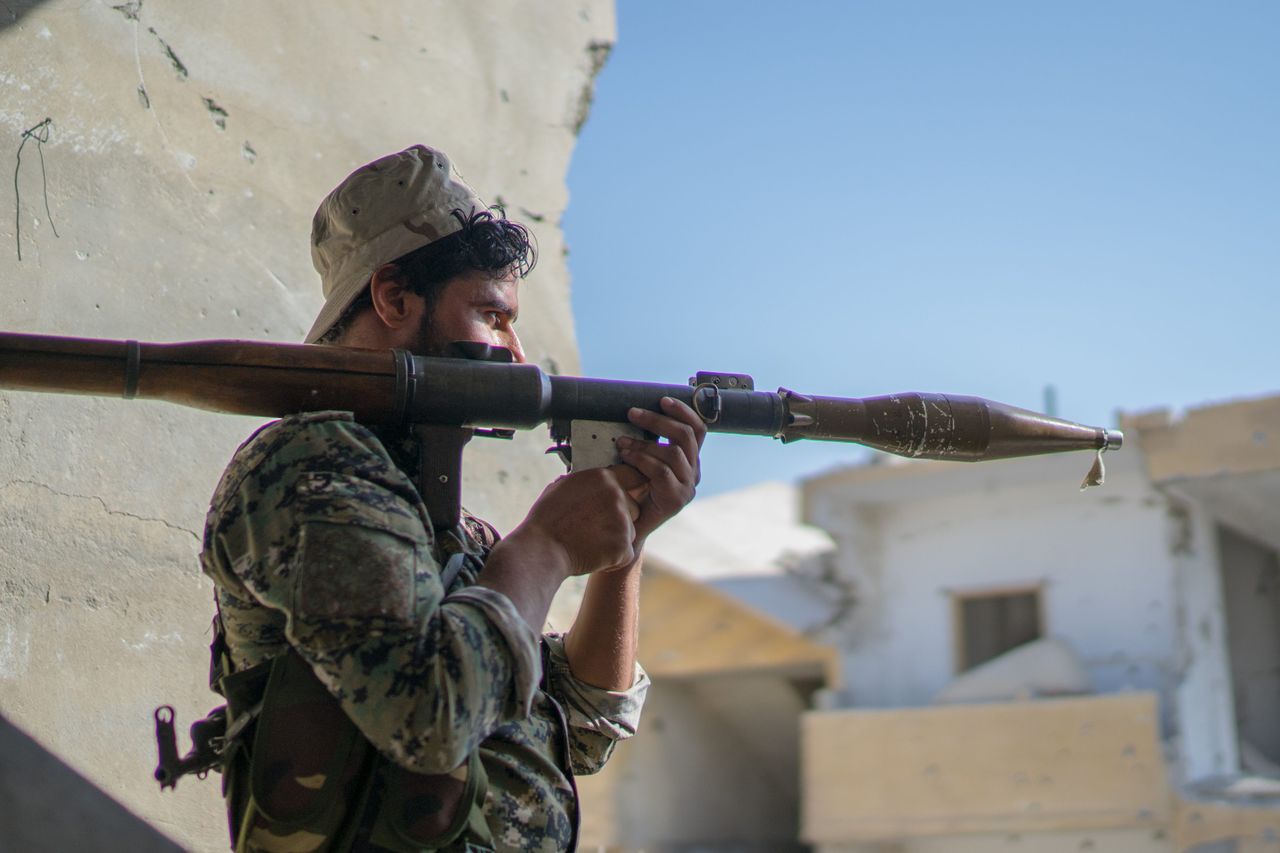
Russian major general Yevgeny Poplavski met with Nouri Mahmoud, the spokesman for the People’s Protection Units (YPG) , a Kurdish militia group. The meeting took place on 3rd of December 2017 in Al-Salihiyah, a town located in the Deir ez-Zor province.
Mahmoud said: “The YPG and Women’s Protection Units (YPJ) are always ready to fight with all forms of terror, using the support of everyone who is willing to help.”
The meeting was also joined by the representatives of the tribes living in the region. Along with the Russians, together they form the United Staff for Operations, whose aim is to fight with ISIS.
According to the Russian Ministry of Defense, the Russian air forces supported the Kurdish and Arab militias with 672 combat flights and destroyed over 1450 targets in Deir ez-Zor province.
The spokesman for People’s Protection Units (YPG) thanked for restoring peace in Syria and announced that the Kurdish militias will protect the safety of the Russian soldiers in the territories located to the east of Euphrates. That is, the ones controlled by the Syrian Democratic Forces (SDF) which are made of Kurdish and Arab militias supported by the United States.
Three days after the joint statement of the representatives of the Russian army and the People’s Protection Units (YPG), the Russian President Vladimir Putin announced the total defeat of ISIS on both sides of Euphrates.
During his 6th December press conference he said: “Of course, there may be some individual resistance points but, in overall, the military action at this stage and in this area has been completed with full, I repeat, full victory and the utter destruction of the opponent.”
Five days later Putin visited the Khmeimim Air Base in the Latakia district, where he announced that the majority of the Russian troops will be withdrawn from Syria.
So far, the Russians have mainly supported the forces of President Bashar al-Assad. There have been multiple clashes between them and the People’s Protection Units (YPG) and, later, the Syrian Democratic Forces (SDF). That is why the analyst perceive the Kurdish-Russian cooperation as a signal the former have sent to the White House.
During the last weeks there have been numerous comments on whether the USA will keep on supporting the SDF. Speculation ensued after Donald Trump was supposed to say during his phone call with the President of Turkey, Recep Tayyip Erdogan, that the White House intends to stop arming the Kurds . Ultimately, however, the Pentagon has repeatedly stressed that the USA will not withdraw its support until the ISIS is not a threat anymore.
Dana White, the spokeswoman for the Pentagon, during a press conference on December 7th 2017 said: “The war with ISIS is not over, also in Syria, but we are changing our forces and our mission. It is also very crucial for us to make sure that ISIS will never rise again.”
The goals that Russia declares are aligned with the Kurdish ones. The Kurds express their willingness to talk with the regime in Damascus. Their main postulate is the federalization of Syria which would allow the Democratic Federation of Northern Syria, a Kurd-dominated region, to exist. Even now, this part of the country (which makes up around 20% of the whole Syria), has independent authorities, infrastructure or services.
The regime in Damascus, however, sends conflicting messages. It declares readiness to negotiate with the Kurds at the same time threatening that the northern Syria will be reconquered as it is currently occupied. Analysts believe that these two contradictory attitudes could be the result of the power struggle between the two forces controlling the Assad’s regime – Russia and Iran. Tehran pursues a more inflammatory scenario in the region, while the Kremlin encourages the parties to undertake peace talks. The Kurds, for now, have not participated in the meetings in Geneva, Astana, nor are they invited to the February peace talks in Sochi.
According to this source, that is about to change. At least a 40-people delegation from the Kurd-dominated Democratic Federation of Northern Syria is supposed to join the talks in Russia. Currently it is difficult to assess what will be the reaction of Iran and Turkey, which hold the peace talks together with Russia. This last country, in particular, perceives the Kurdish militias as terrorists because of their links to the Kurdistan Workers’ Party (PKK).
The uncertainty of Americans plays into Russia’s hands.
The Kremlin presents a specific plan on how to, at least partially, stave off the Syrian Civil War which has been ongoing since 2011.
As a result, more than 400,000 people were killed and 11 million, half of Syria’s pre-war population, had to flee their homes.
The Kurds say that their rapprochement with Moscow does not mean breaking off the cooperation with the United States. They do not want, however, to be limited to a cooperation with just one foreign partner.























